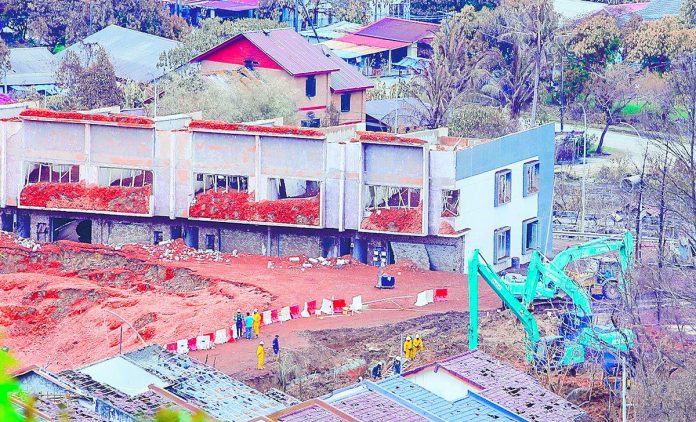PETALING JAYA: Environmental watchdog RimbaWatch has urged the Selangor government to launch an independent inquiry into Petronas Gas Berhad and several government agencies following the April 1 gas pipeline explosion in Putra Heights, which injured 145 people and damaged over 200 homes.
The call comes after a report by the Occupational Safety and Health Department concluded that the blast was caused by unstable soil and groundwater accumulation, leading to 24.3cm of soil subsidence over 25 years. The report, released on Monday, found no evidence of negligence.
RimbaWatch has challenged this conclusion, arguing that Malaysian law defines negligence as the failure to exercise reasonable care, particularly when such failure results in harm.
“Given this definition, a number of questions remain unanswered,” the group said in a statement.
Citing the Petroleum (Safety Measures) Act 1984 and Gas Supply Act 1993, RimbaWatch stressed that pipeline operators may bear civil or criminal liability if faults in design, monitoring or maintenance are found.
It said Petronas has consistently promoted its pipeline infrastructure as long-lasting and monitored using advanced systems, including aerial and ground patrols, and real-time technologies such as Scada and PiriGIS.
Given these capabilities, RimbaWatch questioned how such significant soil movement went unnoticed.
It pointed out that environmental impact assessments (EIA) have been mandatory since 1988 and questioned whether the original EIA for the pipeline, laid in 2000, adequately accounted for long-term geological risks, such as groundwater buildup and subsidence.
“Who approved the EIA and who was responsible for monitoring its implementation over the years?”
It also highlighted a history of pipeline failures, particularly the Sabah-Sarawak Gas Pipeline, which has reportedly experienced explosions and leaks since 2014 and was decommissioned earlier this year due to persistent maintenance problems.
“This raises serious doubts about whether Petronas has put in place more stringent monitoring of high-risk pipeline sections, particularly after its experience with the Sabah-Sarawak Gas Pipeline.”
RimbaWatch also called for scrutiny of government agencies involved in land-use planning, questioning how approval was given to build dense housing near a major gas pipeline.
The organisation warned that framing the disaster as purely environmental, with no accountability assigned, reflects a broader trend in Malaysia’s response to environmental disasters.
It cited the 2022 Kampung Iboi floods and Batang Kali landslide as examples in which systemic accountability was lacking.
To underscore its point, RimbaWatch referred to the 2018 Revolution Pipeline explosion in Pennsylvania, which was similarly triggered by a landslide but resulted in nine criminal charges and a US$30 million (RM125.82 million) fine for the operator.
“We call for the Selangor government to commission an independent investigation, supported by local, regional and international experts in engineering, health and safety, geology, and law, to address these critical questions and uphold economic and environmental justice for the residents of Putra Heights,” it said.
RimbaWatch stressed that such a probe must be independent, warning that fossil fuel companies and regulators should not be allowed to escape potential responsibility for a disaster of this magnitude.
At a press conference on Monday, Selangor Menteri Besar Datuk Seri Amirudin Shari said investigations into the gas pipeline explosion at Putra Heights concluded that the incident was not caused by sabotage or negligence but rather by long-term ground subsidence.
He also said police found no evidence of sabotage or negligence contributing to the incident.
The investigation was led by the Occupational Safety and Health Department, alongside the Minerals and Geoscience Department, Public Works Department, Fire and Rescue Department and police.








